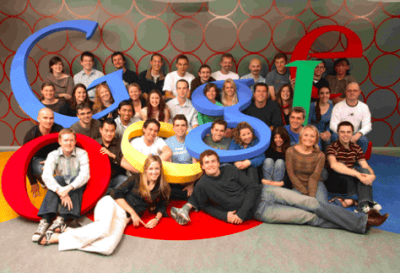ARTICLES
-
The readership of a newspaper can increase from ten thousand to ten million without the authors needing to do any more work to serve an audience 1000 times larger. Over the past generation, journalists have gained the ability to easily reach a global audience. So why aren’t the most talented and prestigious print media outlets and journalists raking in the dough?
-
-
Urbanists have long argued that cities’ large size and density helps them “foster the exchange of ideas.” Wouldn’t it make sense to apply that logic to the very institutions meant to produce new ideas?
-
Analysts' overconfidence in their models and formulas helped cause the collapse of Wall Street in 2007-2008. The same overconfidence can result from relying on systematic approaches to solving any problem.
-
According to a cool tool from the Financial Times, this author's data is worth 38 cents.
-
Even in a world of people performing analytical tasks in front of computers all day, our most intellectual views can be influenced by the same forces that incite monkeys to fling their feces at each other.
-
In 1981, American Airlines offered a lifetime membership for unlimited first-class travel for $250,000. They regretted it.
-
How does the business of SkyMall work? And what is the dark secret behind the recent merger of SkyMall and Xhibit.
-
-
If an internal crisis turns China’s focus inward and curtails hacking and cyber activities as a priority, Chinese hackers could be the 21st century's Russian scientists - neglected, poor, and highly skilled at a potentially dangerous activity that unsavory actors would be willing to pay them good money for.
-
When our English teachers told us in elementary school to "sound it out" as we first started reading, they actually gave us advice that applies to most every langauge but our own.
-
Political scientists do not agree on the causes of authoritarianism, but it’s unlikely that any of them believe that malaria and typhus are responsible for the Mugabes and Putins of the world.
-
Designing peacekeeping missions and then paying poorer, less democratically accountable countries to provide the troops has a thorny moral logic and explains many of the failings of peacekeeping missions.
-
We mostly think about extroversion and introversion in the context of social situations, but they impact our behavior in other ways such as the language we use and the tasks we excel in.
-
In the mid 2000s, as Hollywood sued companies in Utah selling censored movies to a primarily Mormon audience, they also began hiring talented Mormon animators who aspired to reform Hollywood from within.
-
Every day, American employees and consumers sign contracts with an arbitration clause in the fine print. By doing so, they agree to resolve any future disagreements in front of a private legal system rather than a judge. It allows them to sidestep our tortuous legal system, but is it fair?
-
If only you'd kept your Apple I computer in mint condition for 37 years.
-
It might be fun (but costly) for the city of San Francisco since half the fans won't need hotels.
-
Who decided that we need our soulless machines to act like eager to please friends? It’s not like we think they’re human. Right?
-
Want to know once and for all whether Google is losing its cool? Count the number of company sweatshirts being worn by employees getting on the Google bus.
-
-
Our brains have a bias toward sitcom-worthy epic fails. Or, rather, sitcoms are accurately parodying real life.
-
Intellectual property rights incentivize research by private companies but foster a culture of secrecy that slows down the speed of innovation. Is there a way to foster more openness in private sector research?
-
When it comes time to nail down a definition of what people mean when they talk about company culture, however, the definitions are as standardized as definitions of art.
-
There is massive waitlist for kidney transplants. Perhaps it’s time we start allowing the government to harvest our organs.



























